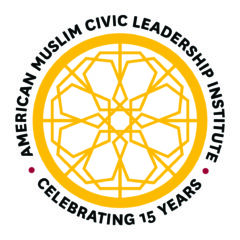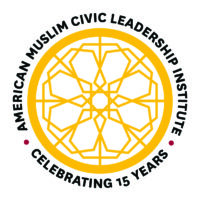How was AMCLI affected by Islamophobia in the post-9/11 environment?
Nadia: After we started to build the program, when we sought funding, a lot of national foundations and institutions weren’t funding mainstream Muslim organizations. The big question I had was, “Are they willing to fund Muslim initiatives?”
At that time, there was a lot of attacking of organizations that were doing anything Muslim-related. My question was really, “Are these organizations going to succumb to the fear and Islamophobia? Or are they really ready to invest in the next generation of Muslim leadership?”
Brie: That is 100% true.
I also think that I was afraid. There was so much Islamophobia at the time. I was worried, one, that we would take a lot of hits for it. And, two, that we’d be creating the hit-list for people to go after. So in raising the visibility of folks, we’re also creating a greater liability for them in terms of what they face.
Nadia: There was also the fear of the personal character assassinations that were happening. If anyone did speak out, there was a whole group of anti-Muslim organizations and people that would come at you and find ways to do 30 degrees of separation from some sort of terrorist activity. You were just waiting for these people to come and try to undermine your character. That was something I know I really was worried about and very conscious of.
I knew why members of the Muslim community would go out on a limb. I think for me, it was the shock that people not connected to the community—that Brie and CRCC—would go out on a limb and be willing to make herself and that organization vulnerable to some extent. You would think it shouldn’t be making people or organizations vulnerable, just to do a basic leadership program, but in the context, it was. That willingness to stand by the community—because it was the right thing to do, and it was part of the belief in a pluralistic society— was something I’ll always remember and respect, and honor.
And then we had people like Stosh Cotler of Bend the Arc: Jewish Action, who stepped up in an overwhelming way. When we were designing the program, I remember Stosh telling us about a program that they had built for Jewish civic leaders across the country. She handed over her binder of her curriculum and said, “If anything’s helpful, feel free to adapt it.” It definitely informed a lot of our activities and our framing.
That was an interesting way to start a Muslim program, with a leader of a Jewish organization kind of leading us in that process.
I think it also demonstrated to others that there are people who are invested in building the Muslim community that come from other communities. To be able to experience that was another one of those moments where I was in awe of how much people are willing to share without being proprietary about what they had built, so that others could build similar or parallel programs. That was really powerful.

